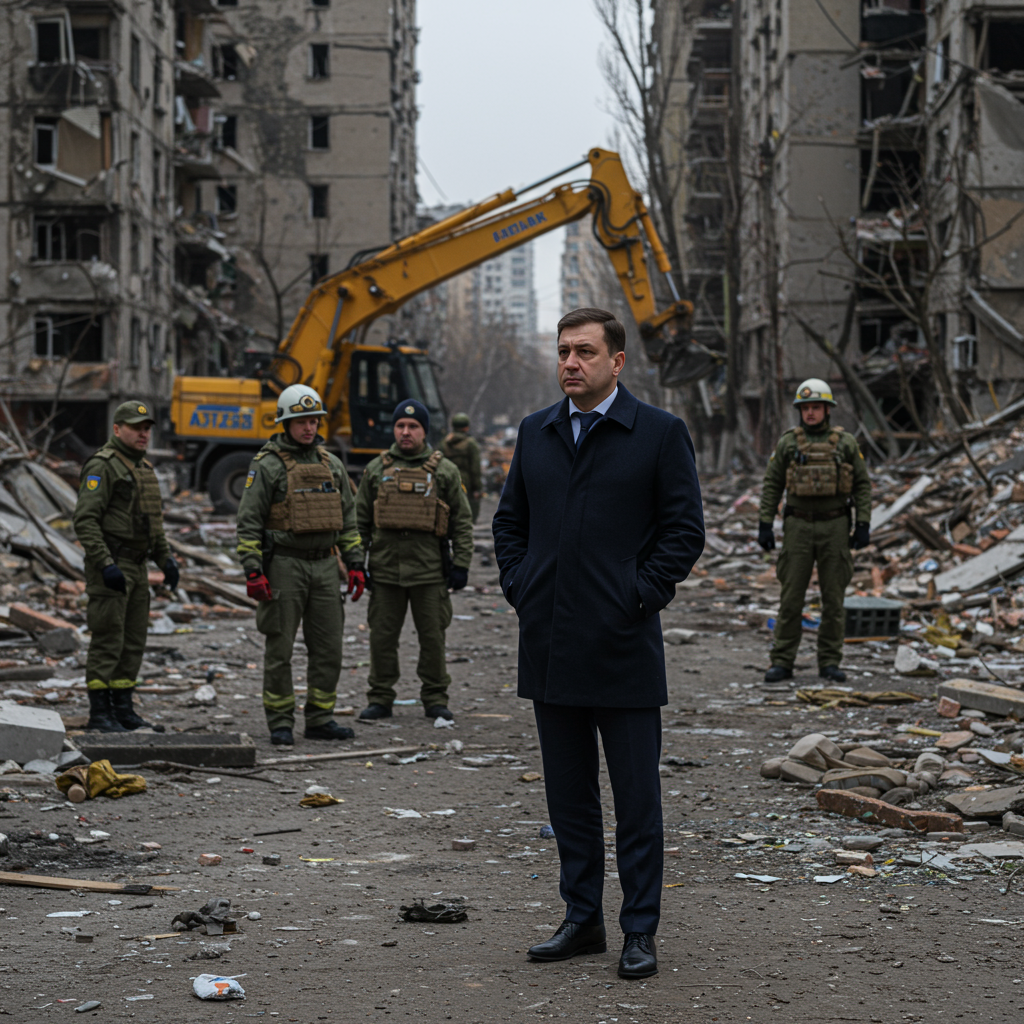A devastating Russian ballistic missile attack struck the Ukrainian city of Dnipro on June 24, 2025, resulting in widespread civilian casualties and significant damage to infrastructure. The morning strike, which occurred around 11:30 a.m. during a ballistic missile air alarm, targeted various civilian sites across the city and the nearby town of Samarske.
Initial reports quickly indicated the severity of the assault. Dnipropetrovsk Oblast Governor Serhii Lysak described finding “dead and wounded everywhere” in the aftermath. President Volodymyr Zelensky initially reported at least 11 deaths and over 160 injuries, noting that rescue operations were ongoing and the toll was expected to rise.
Escalating Casualty Count
As the day progressed, the casualty figures tragically escalated. Governor Lysak later confirmed that the death toll from the attack in Dnipro and Samarske had risen to 17 people killed. The number of injured also surged dramatically, reaching 279 casualties across the region. This figure included at least 27 children among the wounded. Lysak added that nearly a hundred victims remained hospitalized, with some in critical condition. In Samarske specifically, the attack resulted in 2 deaths and 14 injuries, with eight people requiring hospitalization.
Civilian Infrastructure Devastated
The ballistic missiles caused extensive destruction to non-military targets. Mayor Borys Filatov and Governor Lysak reported fires and severe damage across Dnipro. Specific sites hit included a dormitory, a gymnasium, and an administrative building. The scale of the damage to social infrastructure was particularly stark, with reports detailing damage to:
19 schools
10 kindergartens
A vocational school, a music school, and three after-school institutions
The social security department
- Eight medical facilities, including a hospital, outpatient clinics, and a dental clinic
- kyivindependent.com
- www.kyivpost.com
- www.yahoo.com
- www.yahoo.com
- kyivindependent.com
The full extent of damage to residential areas was still being assessed following the attack.
Passenger Train Targeted
Among the targets hit was a civilian passenger train. Ukraine’s national railway company, Ukrzaliznytsia, confirmed that train number 52, traveling from Odesa to Zaporizhzhia, was damaged while at a station in Dnipro Oblast. Videos from the scene showed the missile’s blast impacting near the train, causing fragments to hit carriages and passengers. Head of the Presidential Office, Andriy Yermak, shared footage and condemned Russia, calling them “terrorists masquerading as a state” for targeting a civilian train.
Ukrzaliznytsia reported that five train cars were damaged, and there were approximately 500 passengers on board. While subsequent updates clarified that no passengers or railway workers were killed on the train itself, several individuals sustained injuries and received immediate medical assistance. An alternative train was quickly arranged to evacuate passengers and allow them to continue their journey.
Wider Context of Aggression
The deadly strike in Dnipro unfolded concurrently with a high-level NATO summit in The Hague, where Secretary General Mark Rutte had recently reaffirmed Russia as the alliance’s most significant immediate and long-term threat.
This attack is seen by many as part of a broader pattern of Russia’s continued targeting of Ukrainian civilians and critical infrastructure. Analysts argue such actions highlight the urgent need for robust international responses and accountability.
In response to Russia’s ongoing aggression, significant international steps are being taken to ensure justice for victims. On June 25, the Council of Europe and Ukraine are set to sign an agreement to establish a special tribunal specifically focused on the crime of Russian aggression. This tribunal aims to hold high-ranking Russian officials, potentially including President Putin, accountable for initiating and waging the war, asserting that their official status does not grant immunity from prosecution for this specific crime. This move underscores the international community’s determination to pursue accountability for the actions unfolding in Ukraine, like the devastating attack on Dnipro.



